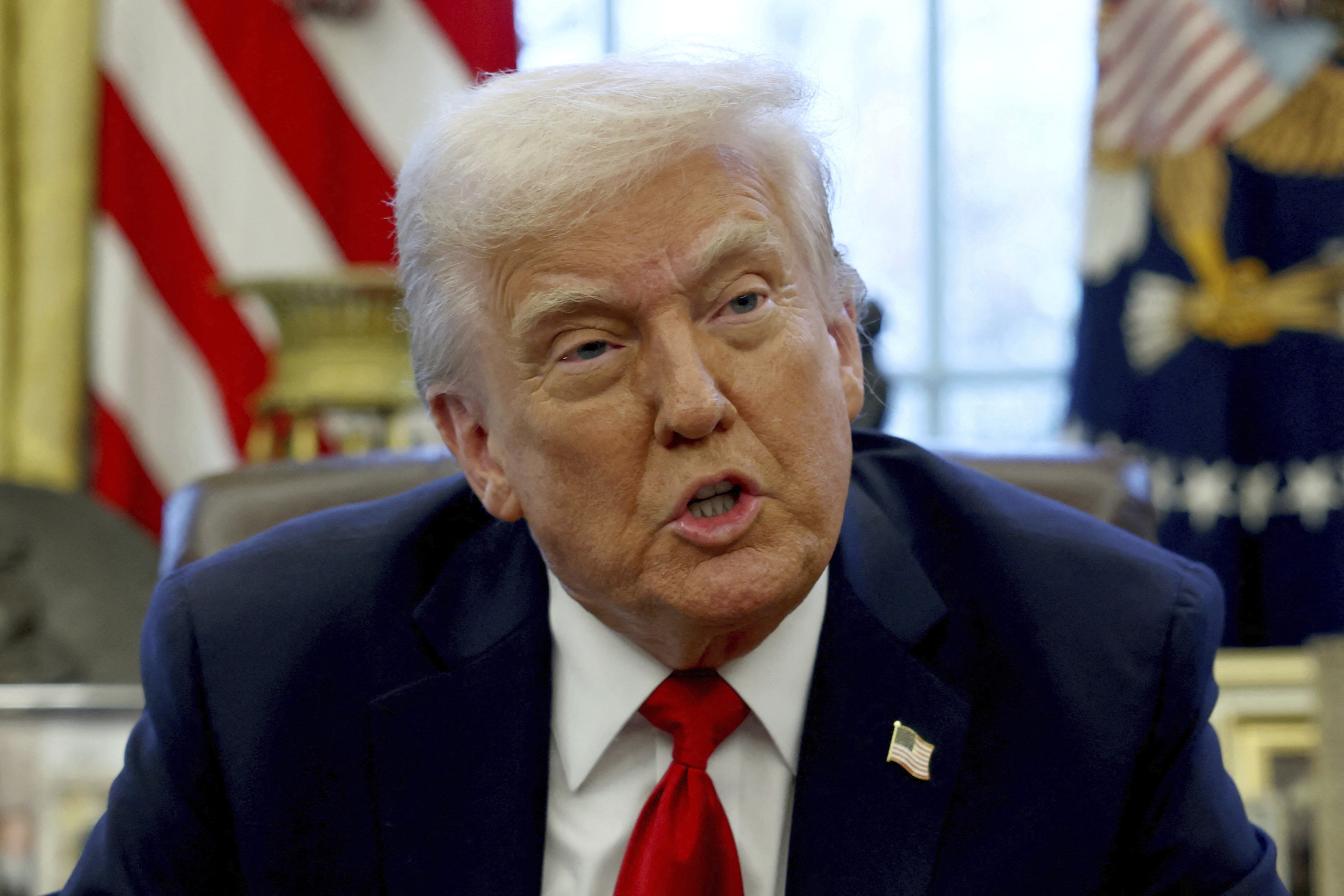The President of the United States, Donald Trump, announced on Wednesday from the Oval Office the imposition of 25% tariffs "for all cars not manufactured" in the country. No exceptions for neighbors, partners, "friends or enemies." No exceptions for national brands that manufacture abroad either. The measure will take effect starting April 2, which he has dubbed as "liberation day," as he plans to impose "reciprocal tariffs" in general, on any country that has restrictive measures on any American product, which applies to tariffs as well as taxes like VAT in Europe.
In a statement from the Oval Office, Trump explained that revenue collection would begin the following day, April 3, and his team indicated that they expect to earn up to $100 billion a year through protectionist measures. This will generate "tremendous growth" for the automotive industry and boost employment and investment in the US.
The vast majority of economists and analysts believe that this decision, like others, will disrupt car production, raise prices everywhere, and further complicate relationships on the continent. General Motors' shares fell by approximately 3% on Wednesday when the White House confirmed it was planning the announcement, which came after Wall Street had closed. Nevertheless, automotive industry stocks fell in after-hours trading. General Motors, Stellantis, and Ford Motor lost about 5% in what is known as after-hours or extended trading. The Mexican peso also dropped more than half a point against the dollar upon the order's announcement.
Half of the cars sold in the US come from abroad. Mexico is the main foreign supplier of cars to the United States, followed by South Korea, Japan, Canada, and Germany. "This is permanent," Trump said, closing the door to exemptions but also indicating that the measure is expected to remain in effect during his four-year presidency. This is something he has also said in the past on other occasions before reversing course, for example, when he imposed the same 25% on cars from Mexico and Canada, before the three major manufacturers asked him to delay it. "If you manufacture your car in the United States, there is no tariff," Trump concluded.
"I deeply regret the United States' decision to impose tariffs on EU automotive exports. Tariffs are taxes: bad for businesses, worse for consumers, in the US and the EU. The EU will continue to seek negotiated solutions while safeguarding its economic interests," quickly reacted the President of the European Commission, Ursula von der Leyen.
Responding to questions from journalists, the president insisted that tariffs will help reduce the US trade deficit, debt, and allow for tax cuts. He also stated not having discussed this with Elon Musk, whose Teslas are manufactured worldwide but uses plants in Texas and California for domestic production. "Anyone with plants in the United States will do well," Trump said.
Will Scharf, an advisor to the president, clarified that the new tariffs apply to "foreign-made passenger cars and light trucks" and will be added to existing tariffs. However, he did not provide details on, for example, what will happen in the long term with parts, as most vehicles are assembled with thousands of components that can come from dozens of different countries. In the specific case of the US, parts like a piston can cross the northern and southern borders up to six times until the vehicle is completed.
The executive order signed on Wednesday seems clearer, stating that this 25% "will apply to imports of passenger vehicles (sedans, SUVs, crossovers, minivans, cargo vans) and light trucks, as well as key auto parts (engines, transmissions, propulsion system parts, and electrical components). Processes will be implemented to expand tariffs to other parts if necessary."
However, parts complying with the USMCA, the free trade agreement it has with its two neighbors and is currently ignoring, "will remain tariff-free until the Secretary of Commerce, in consultation with the US Customs and Border Protection (CBP), establishes a process to apply tariffs to their non-US content," the text says, postponing decisions.
Ken Kim, senior economist at KPMG Economics quoted by The Wall Street Journal, stated in a note that their data shows "a significant increase in orders for vehicles and parts in February, as the automotive industry placed more orders before the steel and aluminum tariffs took effect." Industry estimates suggest that the price of a new vehicle would increase by several thousand dollars, perhaps over $10,000 for the most expensive ones, due to the tariffs.
Trump promises to extend the deadline to keep TikTok operating in the US
The president took the opportunity to promise that he will extend the deadline for TikTok to continue operating in the country if an agreement is not reached for its parent company, the Chinese ByteDance, to divest the platform.
"We will reach some kind of agreement. But if it doesn't happen, it's okay. We'll just extend it (the deadline). I have the right to extend it if I want," declared the president.
Trump acknowledged that China should approve the sale of the application and opened the door to "a small reduction" in tariffs on the giant Asian country to facilitate an agreement. Additionally, Trump emphasized that TikTok is a "very popular, very successful, and very good" application.
On January 20, on his first day in office, Trump signed an executive order that postponed for 75 days the enforcement of a federal law that requires ByteDance to sell TikTok so that the application can continue operating in the country.
